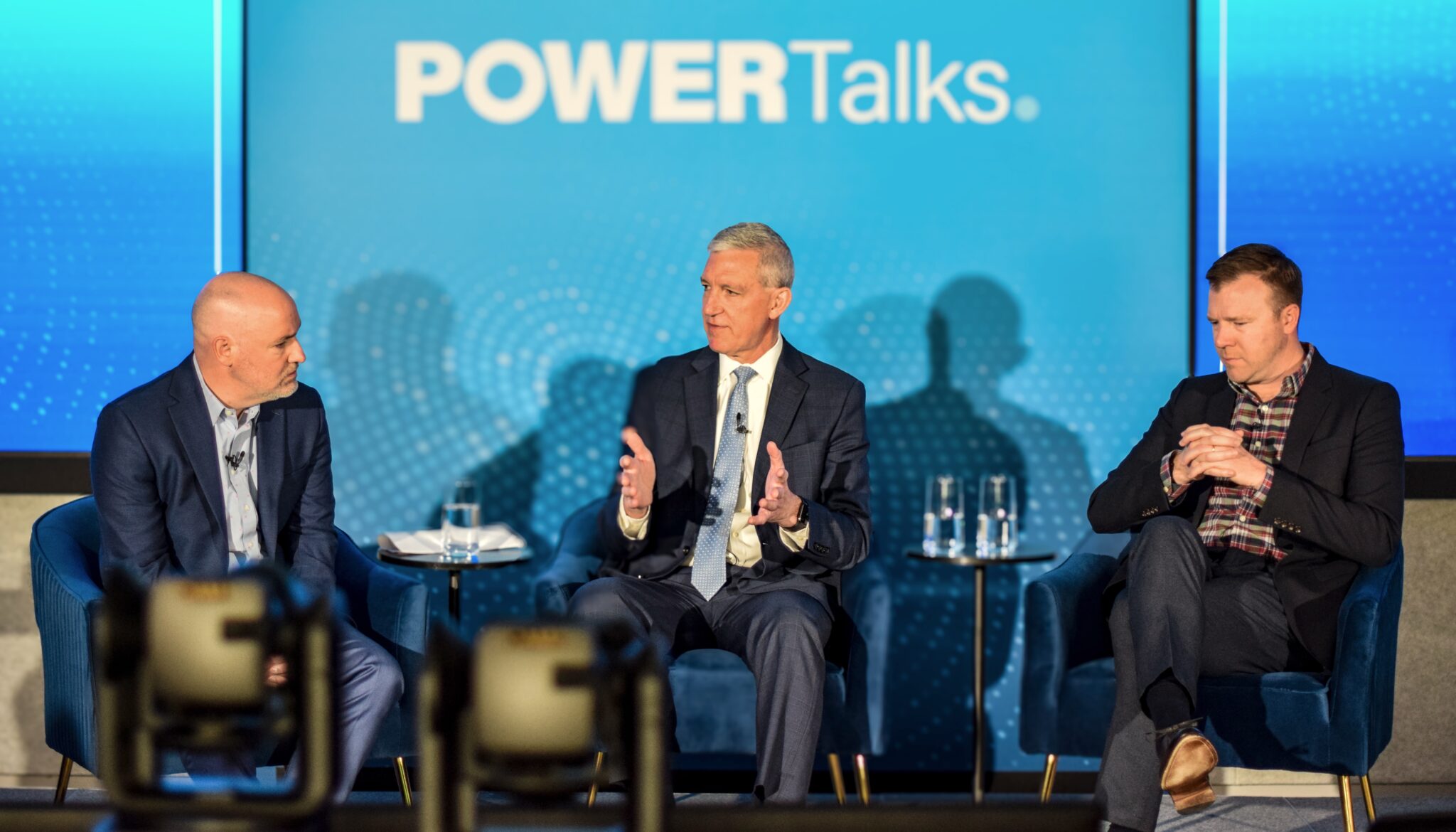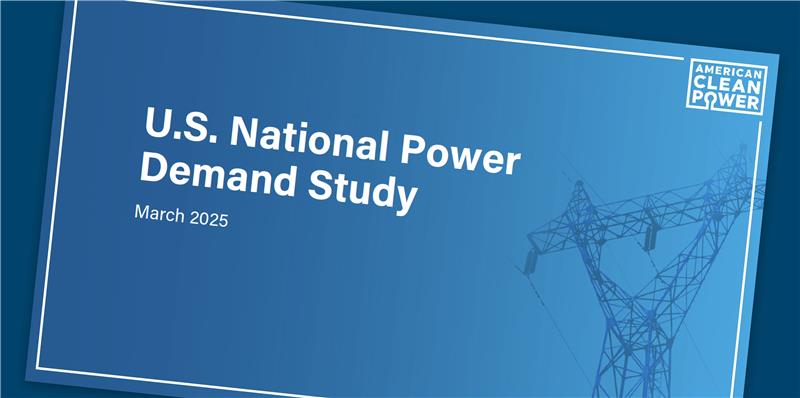Power Demand Surge: Industry Leaders Address Energy Reality and Bipartisan Opportunity
Key Takeaways
- Meeting rising electricity needs will require maximizing all American energy resources to maintain reliability and affordability
- Permitting reform represents a critical bipartisan opportunity to strengthen and build the American energy infrastructure necessary to meet growing demand
- Rising electricity costs could reshape energy policy conversations and highlight the need for comprehensive, durable solutions
The unprecedented growth in American power demand is creating both challenges and opportunities for our energy future. At ACP’s inaugural PowerTalk on March 25, industry leaders came together to discuss how America can adapt to this increasing demand while strengthening energy security, reliability, and economic competitiveness.
The conversation featured energy policy experts Marty Durbin, Senior Vice President of Policy for the U.S. Chamber of Commerce and Dustin Meyer, Senior Vice President of Policy, Economics and Regulatory Affairs for the American Petroleum Institute. The two joined ACP’s Chief Advocacy Officer Frank Macchiarola to explore the realities of America’s changing energy landscape.
Embracing “Energy Reality”
A central theme of the discussion was the recognition that America has entered what Durbin called an “energy reality” phase—acknowledging the substantial growth in power demand across the country driven by manufacturing growth, data centers, and broader electrification.
“Three years ago, I don’t think anybody was even looking at this enormous growth in power demand,” noted Durbin. “We’ve gone through periods of energy scarcity, then energy abundance with the shale revolution. I think that Russia reminded us all about energy security globally… And now I think we’re entering an energy reality phase.”
This pragmatic shift in collective thought comes at a pivotal moment as America seeks to balance reliability, affordability, and a strengthened domestic energy system.
Permitting Reform: A Bipartisan Path Forward
Both panelists emphasized that comprehensive permitting reform represents one of the clearest opportunities for bipartisan progress—benefiting all forms of American energy development.
Durbin clarified a common misconception: “This debate is often perceived as an energy debate. It’s pipelines versus transmission lines. It’s fossil fuel versus renewables. It’s not—it’s everything.”
Meyer added: “The need for something like comprehensive permitting reform becomes more obvious by the day, and the reason is because it has impacted our industry for 20 years or more. But now it’s impacting so many other industries, including the renewable side. And you can see this growing appreciation for what an obstacle the current permitting process—which is fundamentally broken—is to investment of any type.”
Macchiarola emphasized the importance of a truly comprehensive approach to meeting America’s energy needs: ‘Our message to [the Trump administration] is energy dominance and all of the above energy has to include all energy. I think they could take a real lesson from what happened during the Biden Administration,’ referring to how restricting energy development ultimately conflicted with goals for affordable energy.
The ability to build critical energy infrastructure more efficiently would strengthen America’s energy backbone while creating jobs and maintaining affordability. From transmission lines carrying renewable power to factories relying on consistent electricity, permitting reform would support the entire American economy.
Addressing Future Affordability
Looking ahead, the panelists identified electricity costs as an underappreciated but potentially significant concern. As demand continues to grow, maintaining affordable electricity prices for American families and businesses will require proactive approaches.
“On one hand, there’s nothing more visible to the American public than the price of gasoline at the pump. But a close second might be your monthly electricity bill, and you have regions of the country that now routinely get that monthly bill, and it is really surprising,” Meyer observed. This reality reinforces the importance of advancing policies that encourage diverse, reliable, and cost-effective energy solutions.
The PowerTalk highlighted that America’s energy future depends on thoughtful policies that help domestic energy production meet growing demand while strengthening energy security. By focusing on practical solutions like permitting reform that transcend partisan divides, America can build a reliable energy system that powers our economy for generations to come.
Watch the full discussion here.



